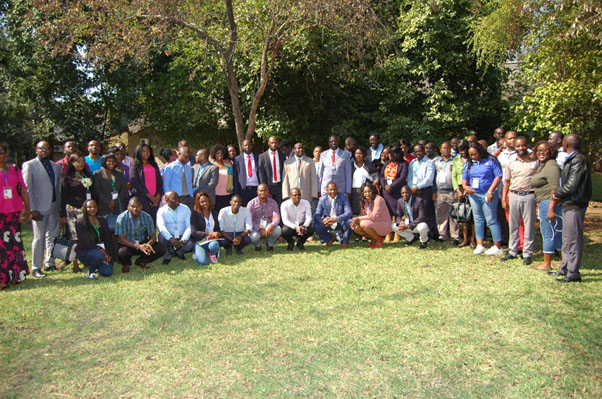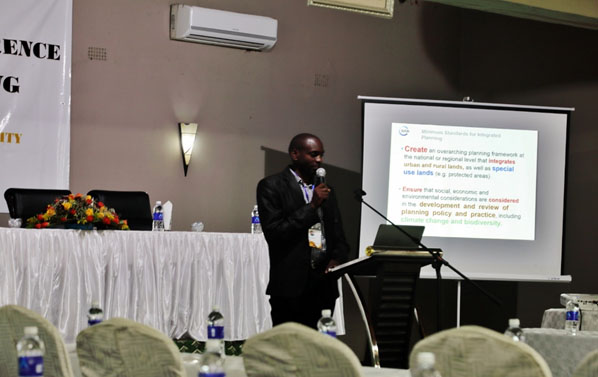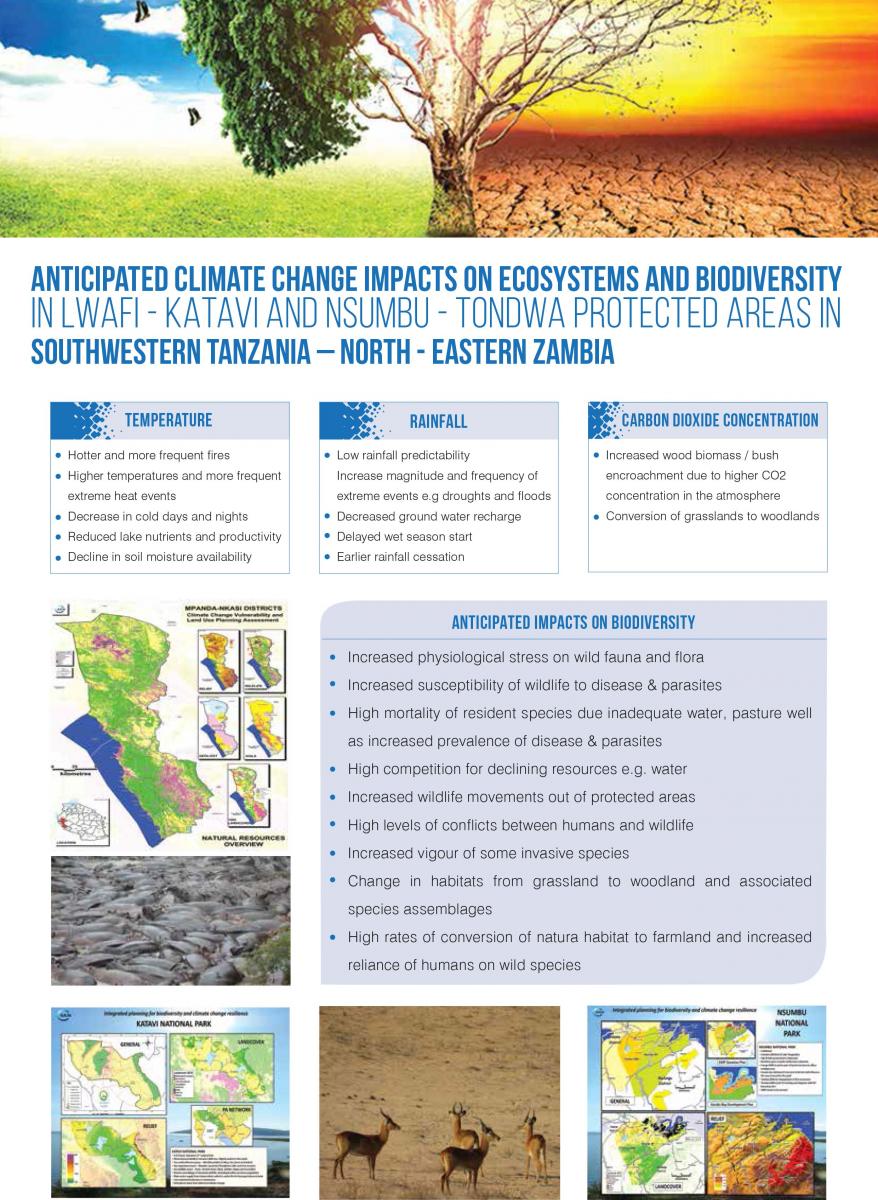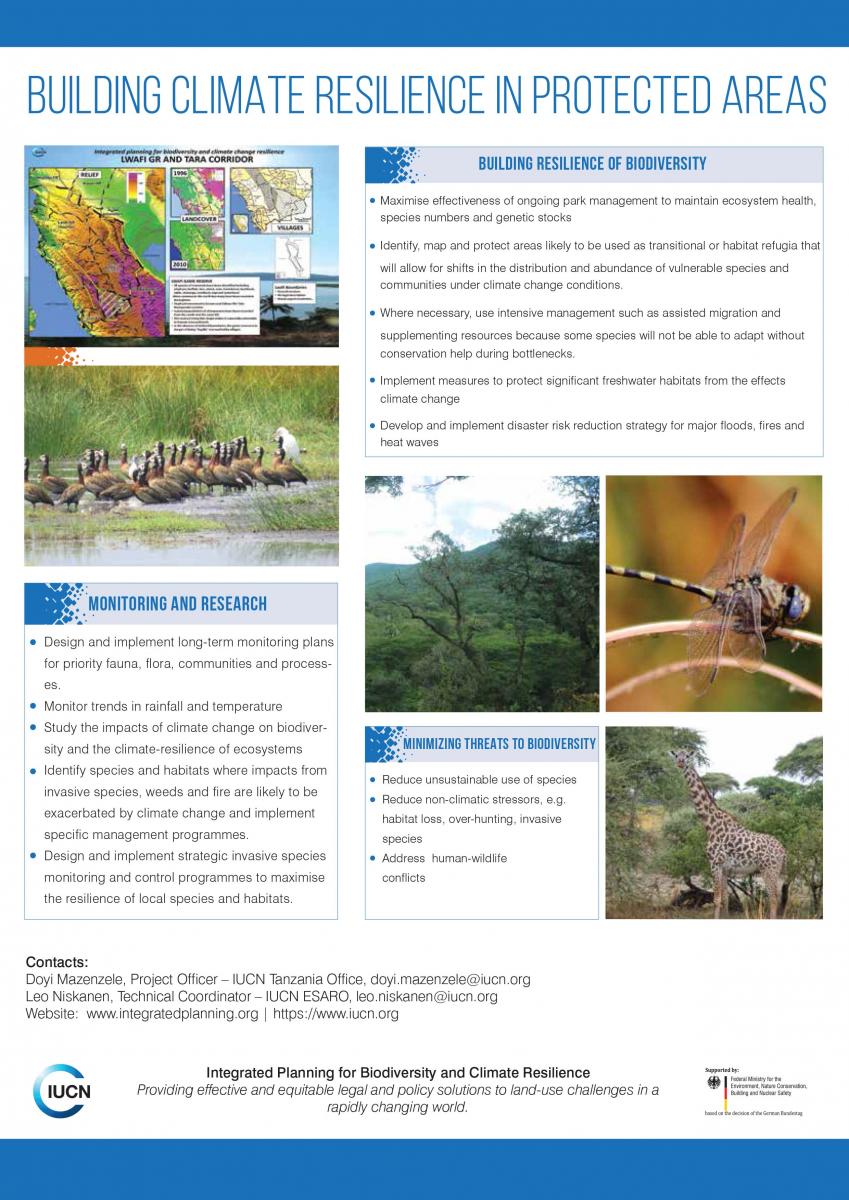National Workshop on Lessons Learned for Integrated Planning
A one-day National Workshop on Lessons Learned for Integrated Planning was held on 9th August, 2018, at Chrismar Hotel, Livingstone, Zambia.
The workshop was attended by over 150 planners (socio economists, environmentalists and physical planners) working at the policy-practice interface from across Zambia representing the Government, NGOs and private companies.
The workshop was organized in collaboration with the Zambia Institute of Planners (ZIP) as part of the National Planning Conference 2018 that was officially opened by Hon. Dr. Edify Hamukabe, Provincial Minister (Western Province). Other Government officials present included the Director of the Physical Planning Department, Mr. Numeral Banda, and the Acting Director of the newly formed Department of Climate Change and Natural Resources Management (also the CBD National Focal Point), Mr. Ephraim Shitima.
The workshop was supported by the “Integrated Planning to Implement the CBD Strategic Plan and Increase Ecosystem Resilience to Climate Change”, a global project being implemented by the Environmental Law Center of the International Union for Conservation of Nature (IUCN), IUCN’s Global Protected Area Programme and three IUCN Regional Offices. It is funded by the German Federal Ministry for the Environment, Nature Conservation and Nuclear Safety (BMU).
The overall objective of the project is to increase capacity to optimize planning to support biodiversity and climate change adaptation objectives, including through the effective engagement of protected area systems.
The project focuses on integrating climate change and biodiversity concerns into spatial planning frameworks. It works in four districts of Lake Tanganyika ecosystem: Mpanda (subsequently renamed Tanganyika) and Nkasi Districts in Tanzania; and Nsama and Mpulungu Districts in Zambia
The main objectives of the workshop were to share experiences on Integrated Land Use Planning and to generate concrete policy-practice recommendations for improving Integrated Planning in Zambia.
Experience on land use planning in Zambia show that:
-
A supportive regulatory environment and institutional structures exists to support effective integrated planning in Zambia. There is also a high level of interest from the authorities to promote planning processes that integrate biodiversity conservation and climate change aspects into land use planning in the country.
-
Although mandated to do so, there is inadequate capacity for integrated planning at district level and therefore this function continues to be carried out by provincial planning authorities. This means that a significant number of districts remain without land use plans and opportunities for effective public participation and for integrating biodiversity and climate change in the planning process at district level are lost.
-
Planning is currently a sector or project based activity and as a result, there is inadequate integration of climate change and biodiversity aspects in the planning process. This is due to a limited understanding of the integrated landscape planning approach and the lack of appropriate planning guidelines.
-
The planning process is generally considered too complicated and takes too long to complete. For example, District Councils are required to prepare three related Planning documents namely Development Plans, IDPs and Strategic Plans. On the other hand, the development of IDPs in some districts takes more than 10 years which is the very lifespan of the plan itself as stipulated in the planning frameworks. In addition, most plans are not fully implemented due to, amongst others, inadequate financing, limited technical capacity and political interference.
Key recommendations from the workshop for improving the planning process including the integration of biodiversity and climate resilience aspects include:
- Develop planning regulations and procedures to operationalize the Urban and Regional Planning Act (URP) (2015). The regulations and procedures shall contain clear provisions for enhancing the integrity of ecosystems (hence sustaining the flow of ecosystem services) and shall establish restrictions for developing areas that are prone to hazards including climate induced hazards.
-
Streamline the current planning process and reduce the number of planning documents required. Currently, district councils are required to produce three planning documents - Integrated Development Plans (IDPs), Development Plans and Strategic Plans. Thus, streamlining the planning process will relieve the districts of the associated burden and cut down on time and costs. Also, there is a need to fast-track the approval of the new guidelines for preparing Integrated Development Plans (IDPs) to have a standard planning procedure for all district councils.
-
Build the capacity of local authorities (District Councils) to take on devolved planning functions. This should go hand by hand with the building of planners’ capacity to integrate climate change and biodiversity in the planning process.
-
For successful integrated planning, there is a need to develop sector specific guidelines for mainstreaming climate change and biodiversity in the planning process and also to improve availability and access to up to date information on climate change and biodiversity
-
Enhance the planning process by improving financing for the development and implementation of the Integrated Development Plans and by controlling the sub-division of already planned areas
-
Raise public awareness on integrated planning targeting community groups and traditional authorities who are primary stakeholders on land use planning as right holders and resource users.
A key next step agreed, amongst others, is that the Department of Physical Planning speeds up the development and approval of regulations, standards and procedures required to operationalize the URP Act. On the side of IUCN, the Integrated Planning Project will continue working with the Government to build planners capacity and to raise public awareness on Integrated Planning.
Contact: Doyi.Mazenzele@iucn.org




